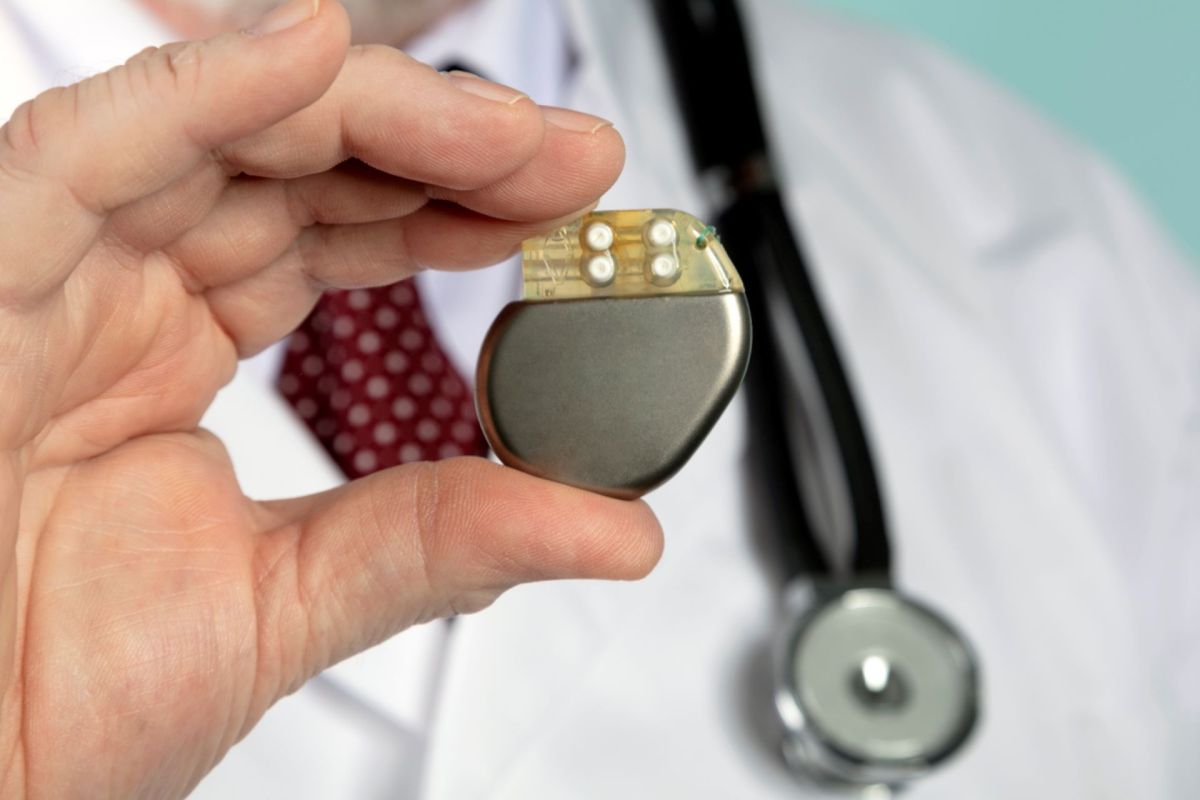Battery tech doesn't always have to provide hundreds of miles of electric vehicle range to be impressive.
Experts at China's Tianjin University of Technology are using a combination of gold, salt, and the oxygen inside of us to make body-based batteries that could power pacemakers and other implanted devices. Fascinatingly, there's even potential for the invention to have disease-fighting abilities, according to a research summary from ScienceDaily.
So far, studies using the tech on rats proved the concept compatible in a "biological system" with no observable ill outcomes. If the little power packs can be used in humans, they could replace the need for surgery when batteries fail in neurotransmitters and other life-saving implants.
"When you think about it, oxygen is the source of our life," corresponding study author Xizheng Liu said in the ScienceDaily report. "If we can leverage the continuous supply of oxygen in the body, battery life won't be limited by the finite materials within conventional batteries."
The Tianjin chemistry uses plentiful oxygen, precious gold, and common sodium. The sodium and gold form electrodes, a common battery part. The researchers said that gold has very small pores — thousands of times tinier than the width of a human hair. That helps to make the chemistry work. The sodium/gold electrodes interact with oxygen in the body to produce electricity, in a simplified explanation. A polymer casing helps to protect the unit, all per ScienceDaily.
More work needs to be completed to find a way to produce enough power to operate medical devices. But the rats handled the implants well, proving that electricity can be generated using the body's oxygen. The experts were also surprised to find blood vessels growing around the device.
"We were puzzled by the unstable electricity output right after implantation," Liu said in the lab report. "It turned out we had to give the wound time to heal, for blood vessels to regenerate around the battery and supply oxygen, before the battery could provide stable electricity. This is a surprising and interesting finding because it means that the battery can help monitor wound healing."
Tech experts elsewhere are developing unconventional batteries geared to power smaller devices, often wearable tech like smartwatches. Researchers at North Carolina State are working on supercapacitors that can be woven into fabric, for example. In other bizarre science, experts are generating small amounts of power from energy created when low-speed wind passes over water droplets. That juice could potentially energize small lights or sensors.
While the electricity output of these projects may seem insignificant, it's part of innovative approaches to rethink how we power things. Better battery tech leads to decreased charge time, which can also save you money.
Sometimes, the research leads to other breakthroughs, too. The Tianjin tech, for instance, could one day help fight cancer.
"Because tumor cells are sensitive to oxygen levels, implanting this oxygen-consuming battery around it may help starve cancers. It's also possible to convert the battery energy to heat to kill cancer cells," Liu said in the ScienceDaily report. "From a new energy source to potential biotherapies, the prospects for this battery are exciting."
Join our free newsletter for weekly updates on the coolest innovations improving our lives and saving our planet.









